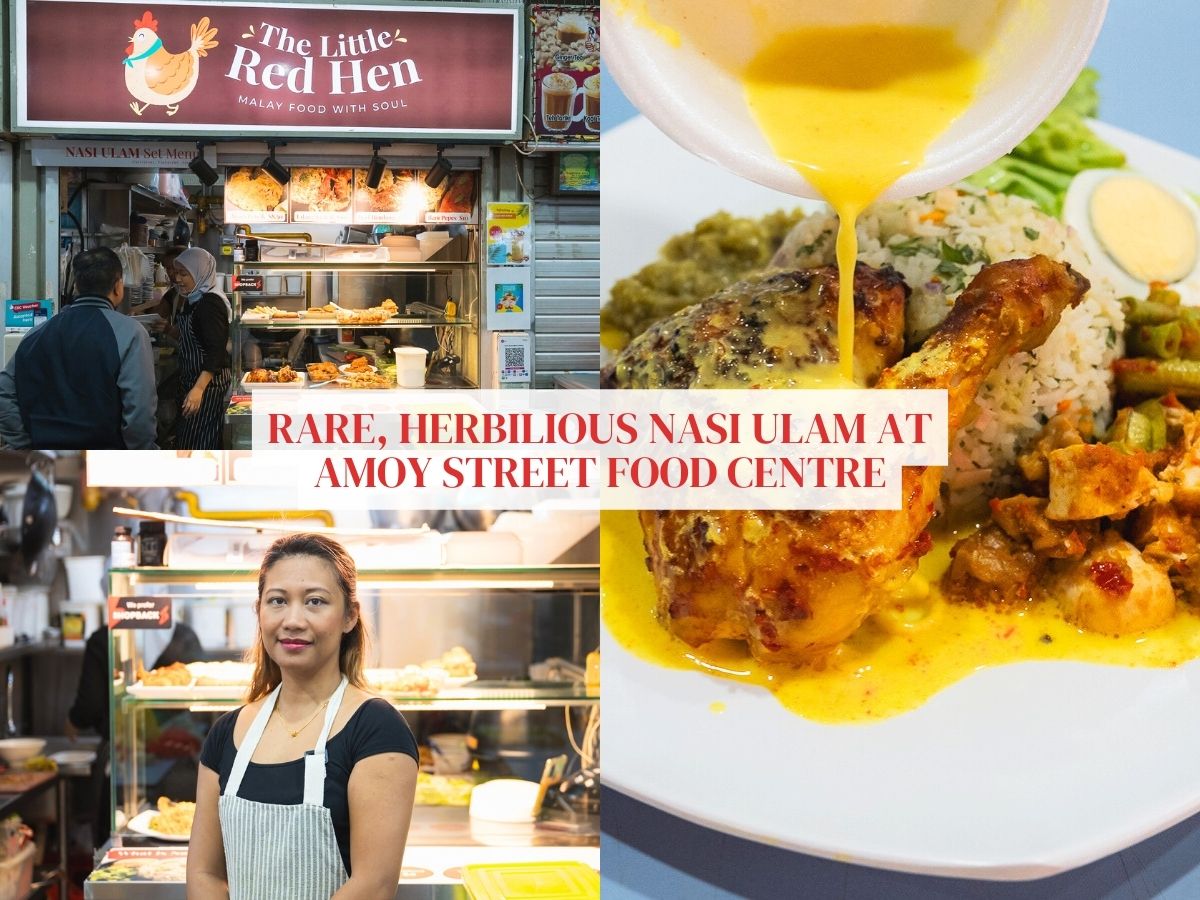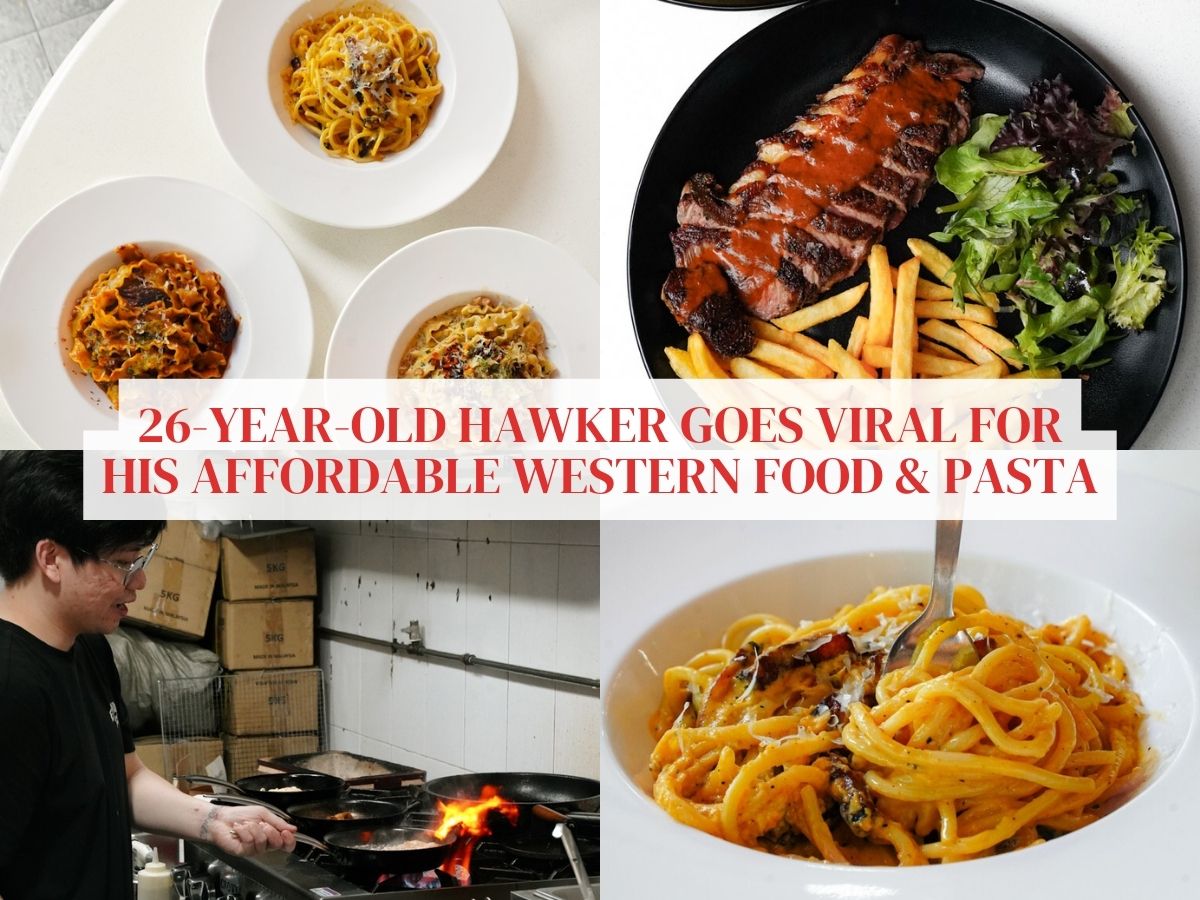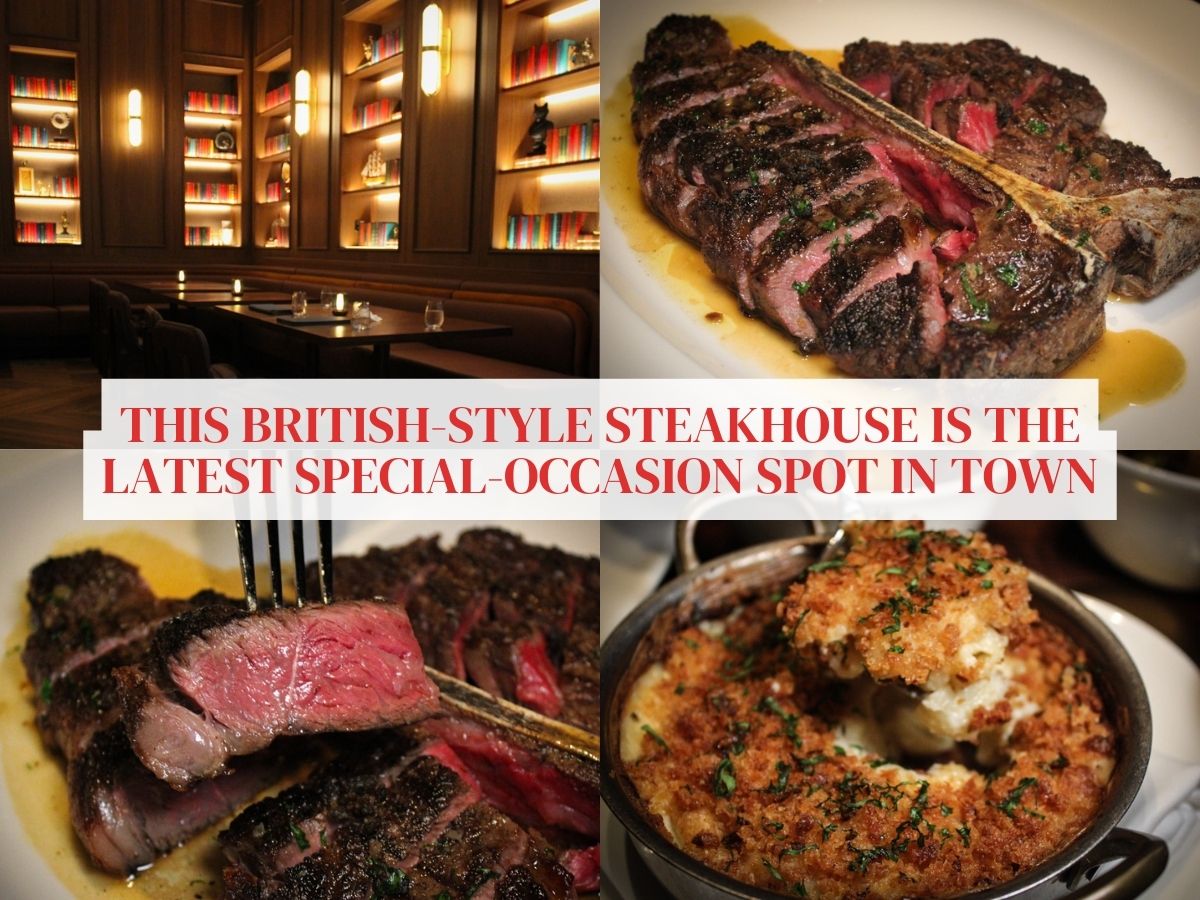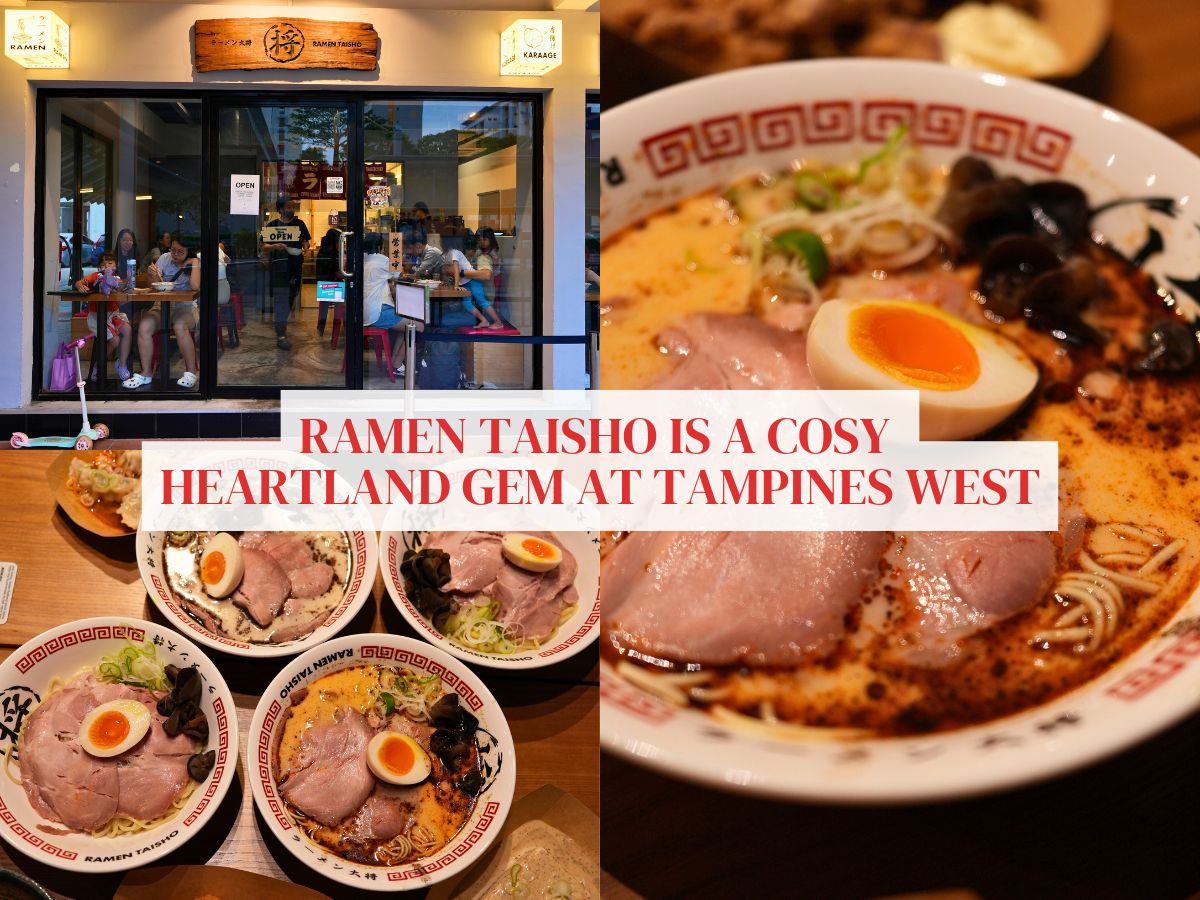The Little Red Hen’s Redha Faikah serves up a healthy take on Malay cuisine with nasi ulam
- After a grueling corporate job that compromised her health, Redha took the plunge to join the “family business” of running a hawker stall.
- Now, she makes nasi ulam, a nutritious Malay dish with plenty of fresh herbs.
- Through her food, Redha aspires to change people’s perspective on Malay cuisine.
Amoy Street Food Centre is filled with many delicious food stalls, but one that definitely stands out is The Little Red Hen. It’s hard to miss, with the logo of a little red hen resembling a children’s book illustration.
Another unique aspect of the stall is its star dish, nasi ulam. Not commonly served in Singapore, the dish consists of jasmine rice mixed abundantly with nutritious fresh herbs.
Dried shrimp is typically added, though The Little Red Hen’s version is paired with ayam percik instead, made in the Kelantan style with coconut gravy.
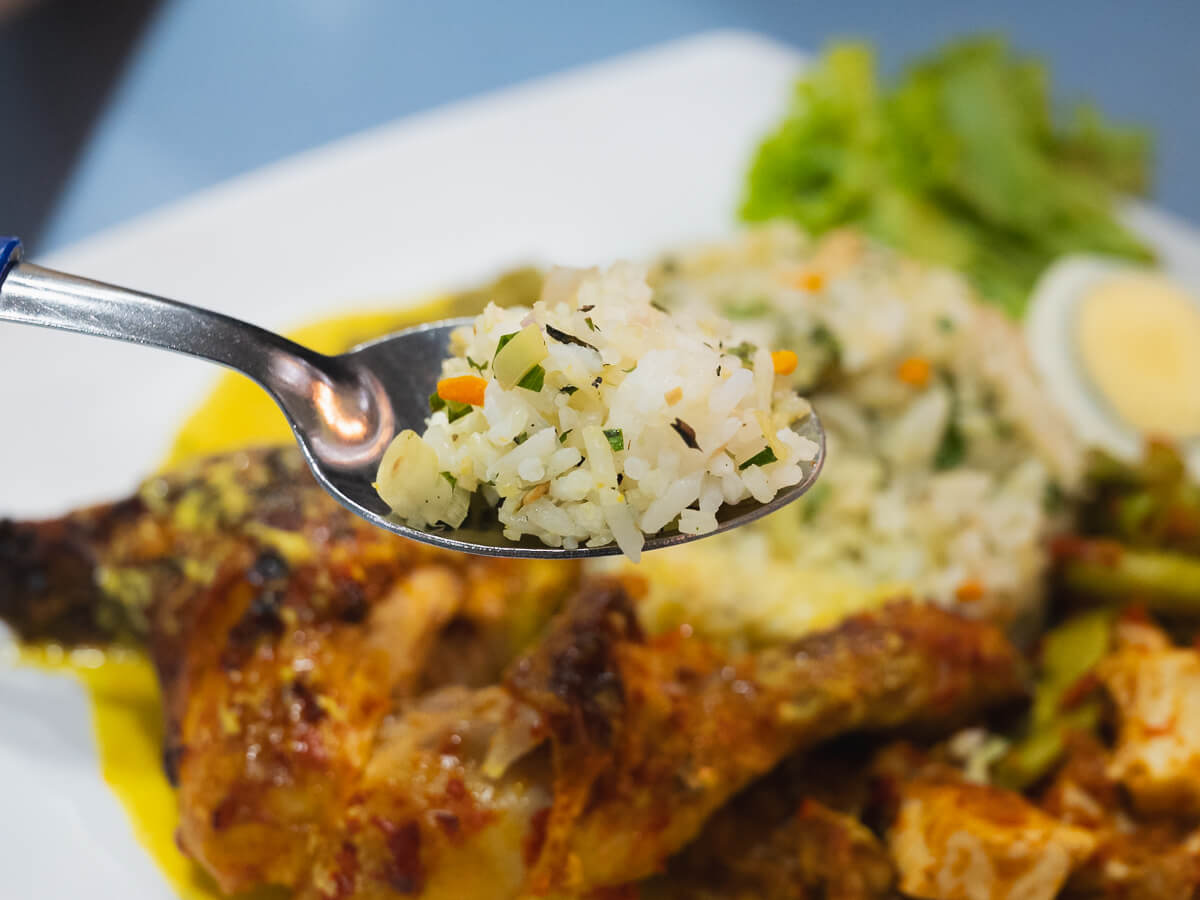
Run by Redha Faikah, 42, and her sister Nur Syakirah, 40, the stall has been around since 2021.
How it all started
According to Redha, family is what got her into the food business. She was previously working for a Russian AI marketing startup and working from home most of the time.
“The boundaries of time were blurred as I was working European and North American timings,” she says. “My health was failing. I thought: ‘Why not work for myself instead, since I was putting so much time into my job?’”
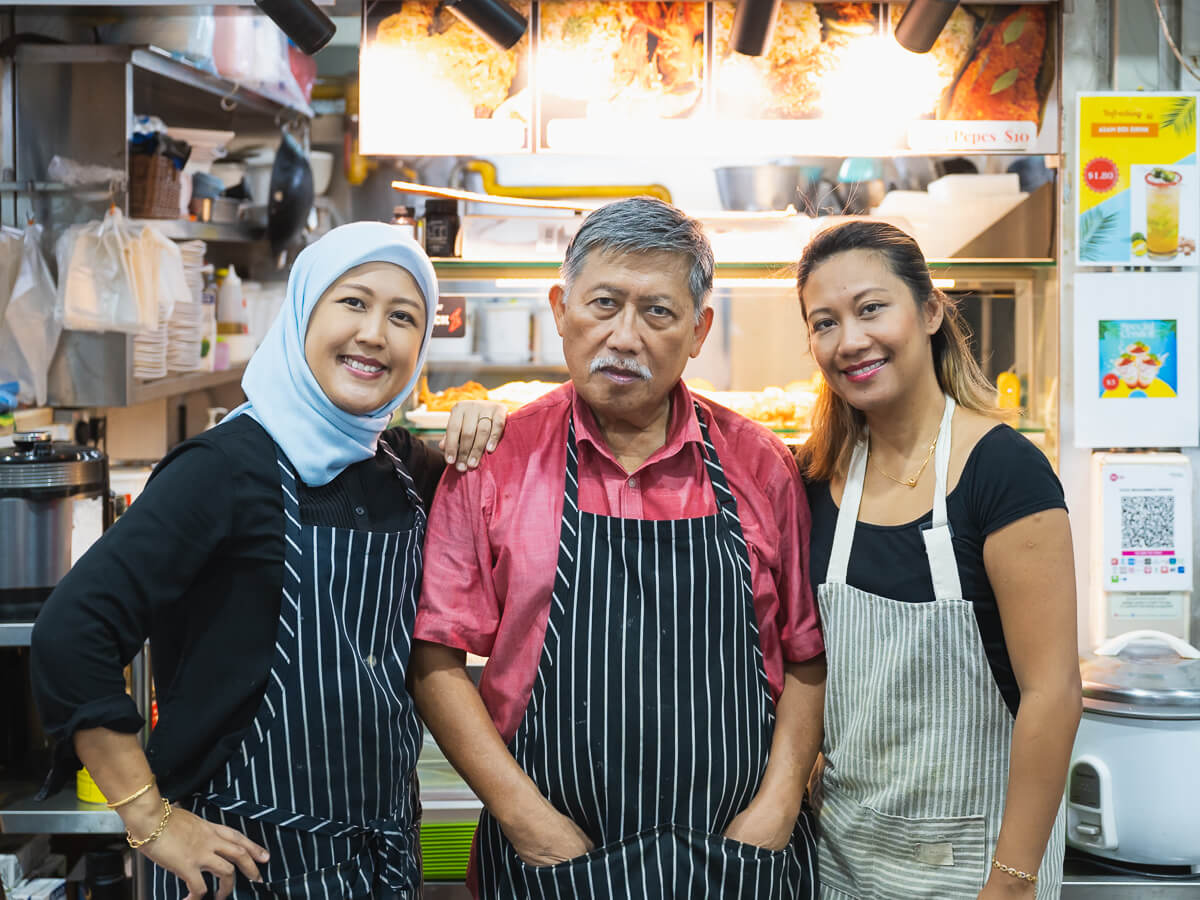
She decided on selling nasi ulam as it is a unique dish that many people have not heard about. She also wanted to change the public perception of Malay food as “unhealthy”.
“My relationship with food changed after I attended a silent retreat where I was exposed to vegan food for a week,” she recalls. “I ate so well with the freshest farm-to-table food. And I’m a big carnivore, so the fact that I never craved meat was an eye-opener.”
“People think of Malay cuisine as rich and fattening, but it doesn’t have to be,” she adds. “Traditionally, we use so many medicinal herbs such as lemongrass, lime leaves and bay leaves in our cooking, that people don’t realise it’s actually meant to be healthy!”
Redha’s parents and sister are also hawkers, so naturally, her family had been trying to get her to join the food business as well. Her family ran (and still does) a nasi padang stall in Amoy Street Food Centre, selling traditional dishes like beef rendang and sambal goreng.
Coincidentally, the stall next to them was vacant.
“Initially, my sister was dead-set against sharing a stall with me. I’m a dreamer and spend too much time on aesthetics, cleanliness and chatting to customers, while she’s efficient (just like in the television show The Bear) and a real businesswoman,” says Redha.
However, Syakirah changed her mind when the family business re-strategised this year and her parents took over her stall. She realised that her sister and her worked really well together, and both of them enjoyed interacting with customers together. She then moved to co-run The Little Red Hen with Redha.
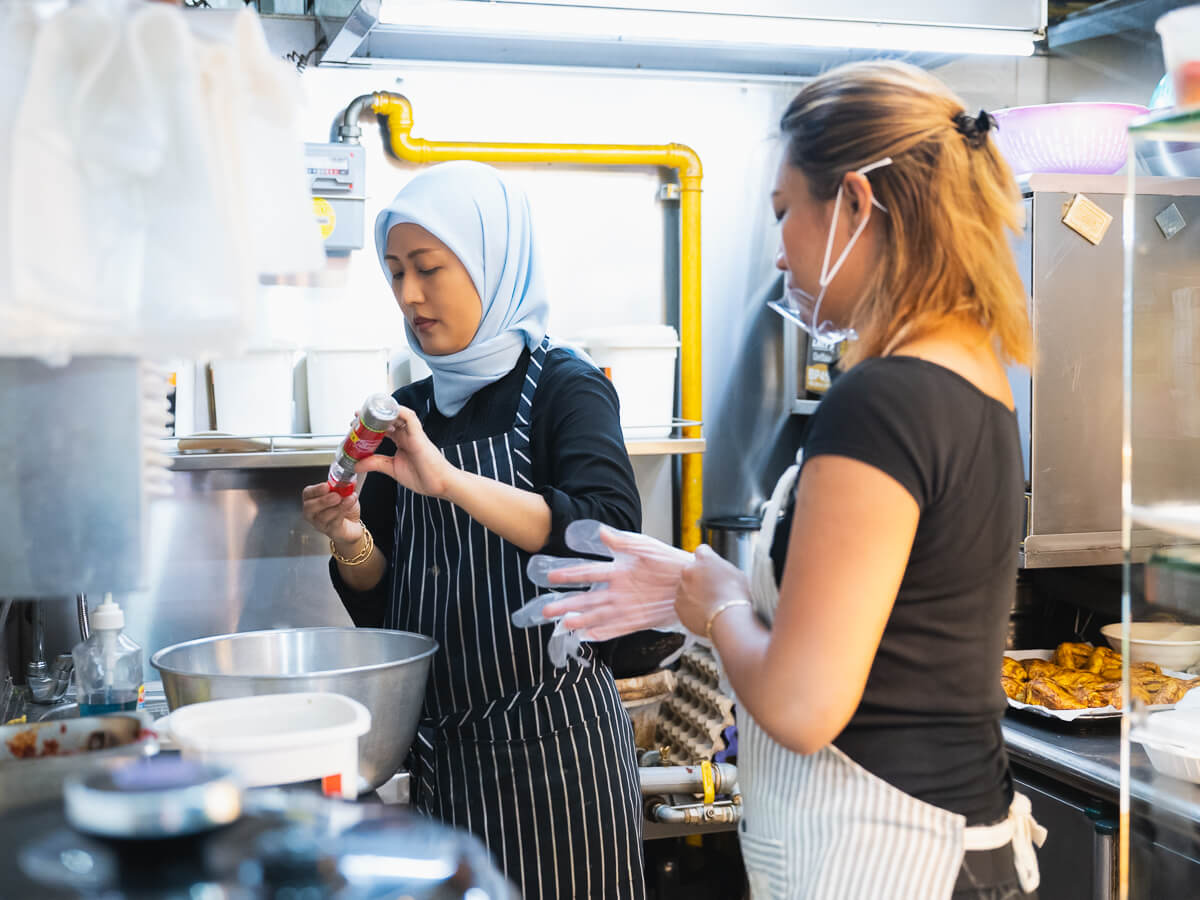
“Now my sister can’t live without me in the kitchen,” Redha jokes. “I entertain her with our private jokes and daily gossip and she keeps me on my toes when she does quality checks.”
As for the stall’s name, Redha was inspired by a children’s book of the same title, which her dad used to read to her and her sister.
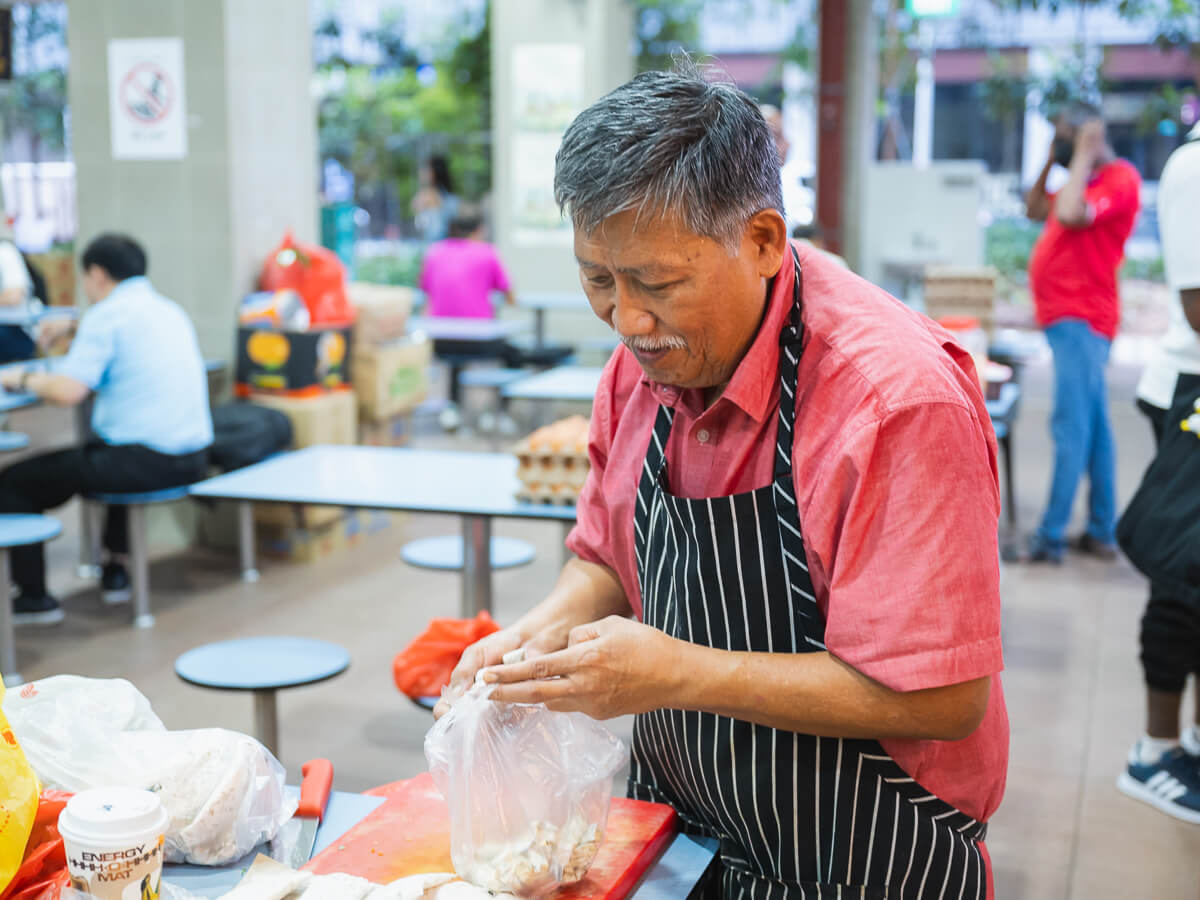
“I’m a daddy’s girl so it’s an ode to him,” she says. “My dad has always been our rock and I know I can never repay him for all his sacrifices he made, so it was important to me that I gave back, somehow.”
Hustling hard
While business has been doing well, it wasn’t always this way for Redha. Having started The Little Red Hen during the Covid-19 pandemic, business was slow to pick up, even after the things returned to normal. Rent was no longer subsidised, too.
“I made huge losses and drained all my savings — my dad had to help me out financially, which was a burden I didn’t want to continue imposing on him,” says Redha. “I used to work for companies who were so emotionally attached to their business that they ended up in financial ruin, so I made the difficult decision to cut my losses.”
In 2023, Redha made the call to shutter the business. Whilst no official announcement was made, news travelled that she was intent on closing down.
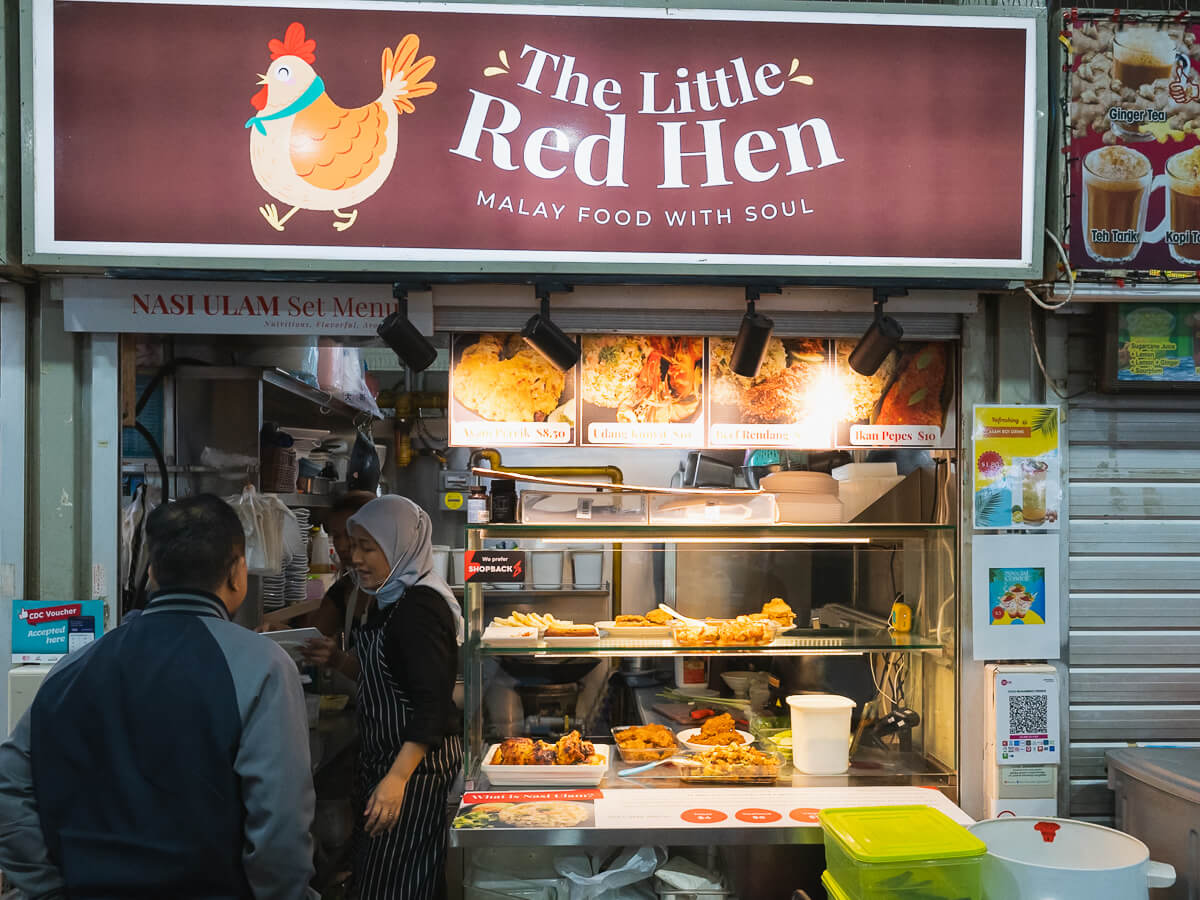
The tides then turned. A slew of publicity drove business up, spurring her to return, as many customers craved a taste of her nasi ulam.
It’s been non-stop and full speed ahead ever since. Redha also started a new full-time job in January this year, managing corporate sales for a theatre company. Her sister keeps things running in her absence.
“My new employer has been incredibly supportive about me running my business on the side,” says Redha. “I’m not good at relaxing and need to be on the move all the time.”
She adds: “After I settle into my new role, I hope to be able to spend more time in the kitchen again — I miss my lunch-time customers!”
The Little Red Hen’s menu
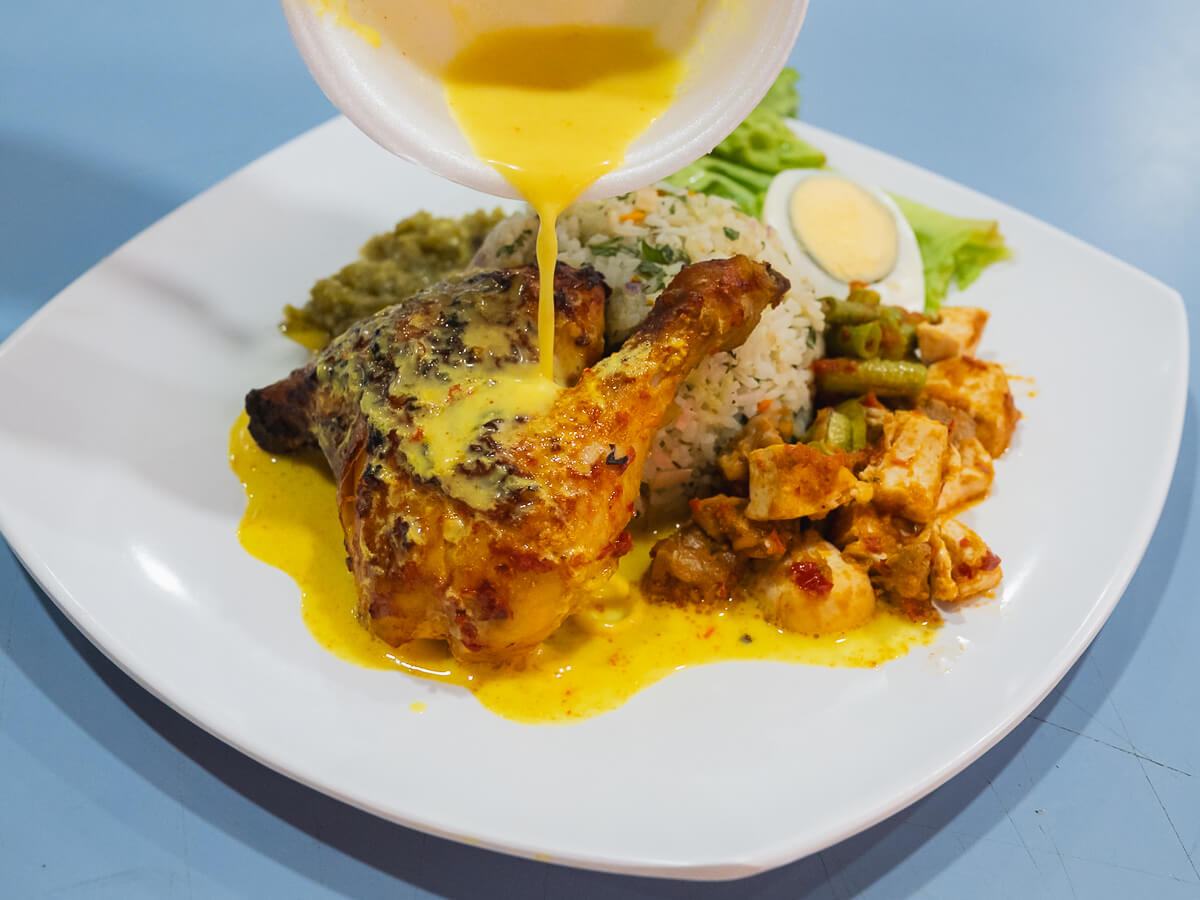
The star of the show at The Little Red Hen is none other than the nasi ulam, which Redha describes as a “rice salad with herbs”. It’s also nutritious, low in cholesterol and can be paired with ayam percik (grilled chicken served with percik sauce), beef rendang or ayam bakar (Indonesian-style grilled chicken).
As for the recipe, Redha has sourced it from her travels overseas to Malaysia and Thailand and supplemented it with online research on how nasi ulam is made.
We had a chance to try her nasi ulam with ayam percik.
It was truly unique and unlike any other Malay dish we’ve eaten in the past. The rice did indeed taste flavourful and packed with herbs, whilst being not too heavy or greasy.
The chicken was tender as well, with percik sauce that wasn’t too spicy or overwhelming (great for someone with a low spice tolerance)!
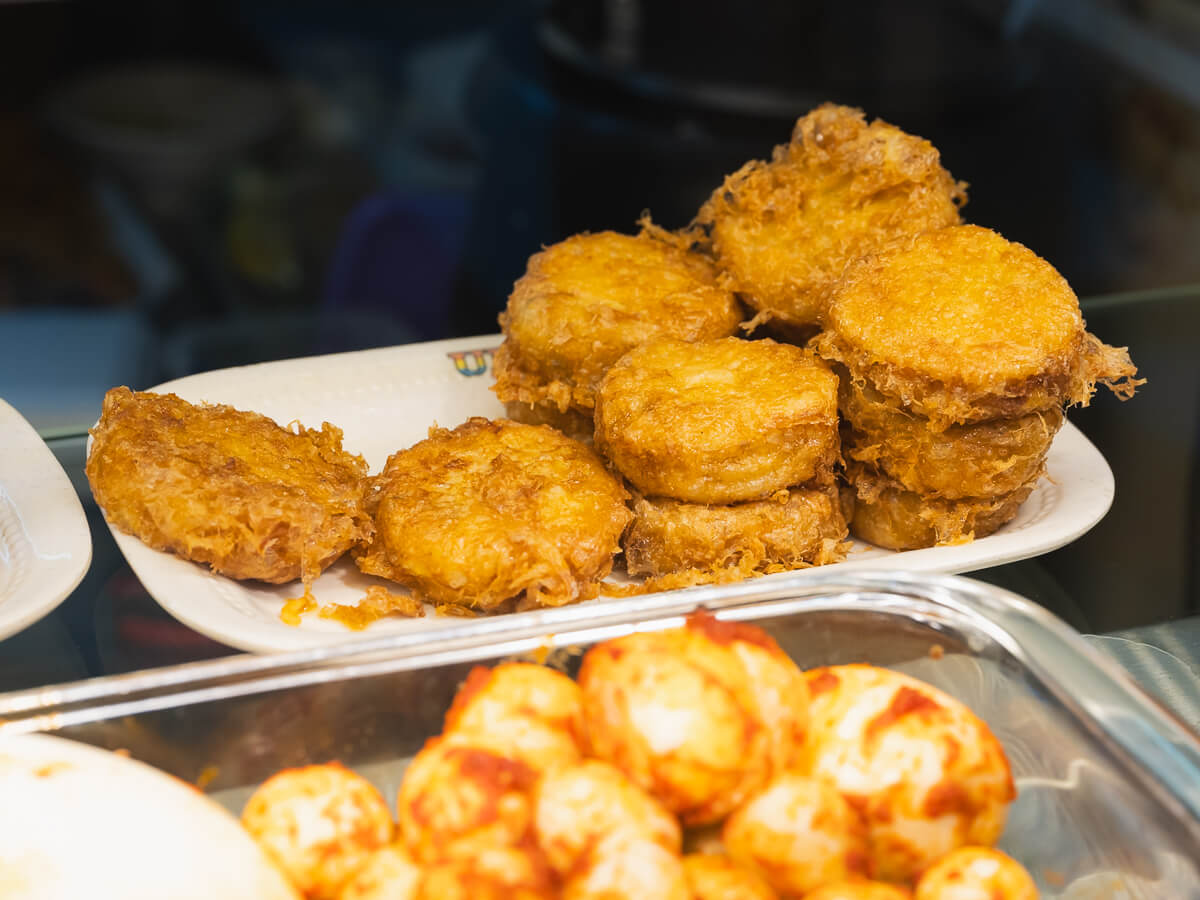
“The food preparation process is very laborious — I use anything from 14 to 17 ingredients (depending on the season and availability) and we shop for the ingredients from three to four different markets,” says Redha.
As per the traditional method of making nasi ulam, all the herbs have to be hand-sliced into fine pieces, without the help of a processor. Some of these herbs include lemongrass, turmeric, betel and laksa leaves. Hand-slicing the herbs proved to be a painful process for Redha when she first started and she would break down crying from exhaustion.
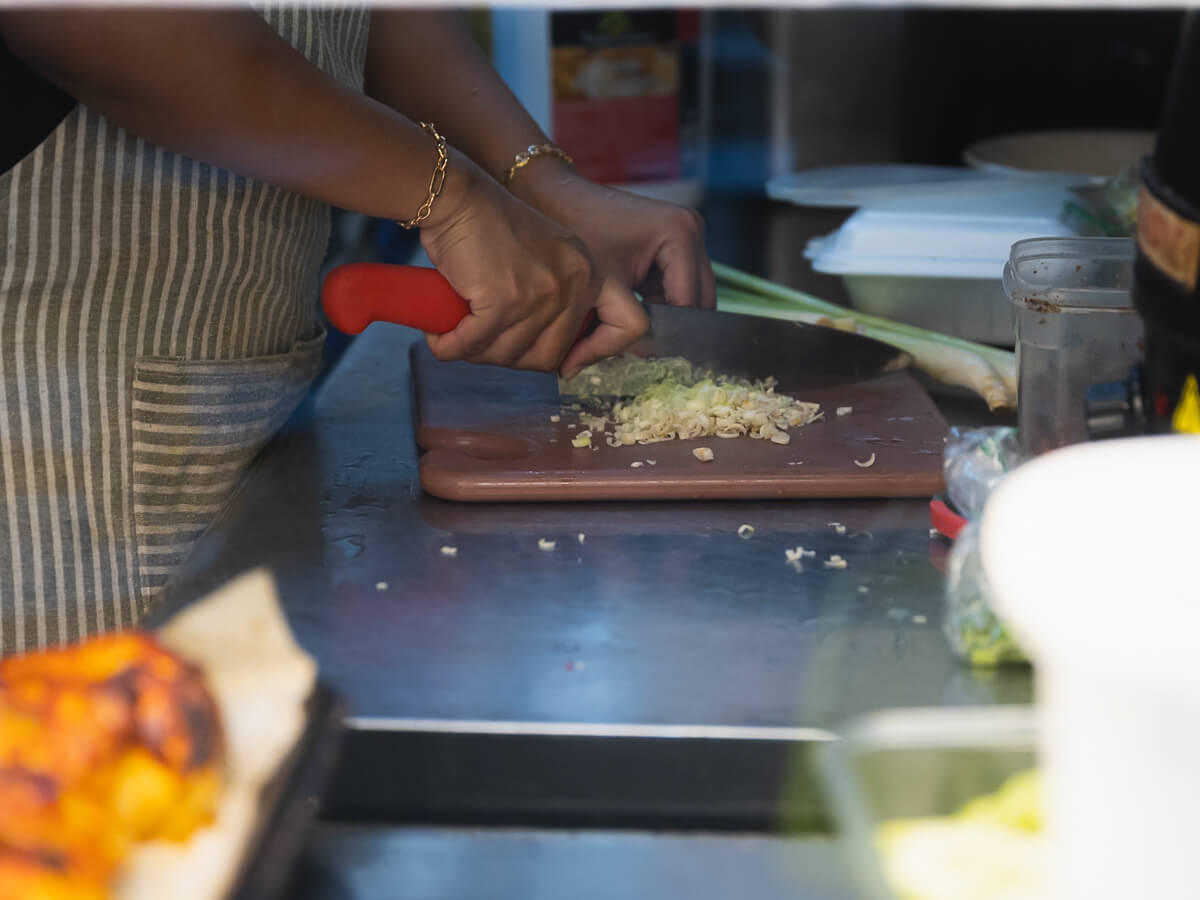
She adds: “The size of each herb matters and it’s a fine balancing act. Having too much of one herb will overwhelm the taste completely.”
She also notes that the herbs are high in nutritional value, with anti-inflammatory and antioxidant properties.
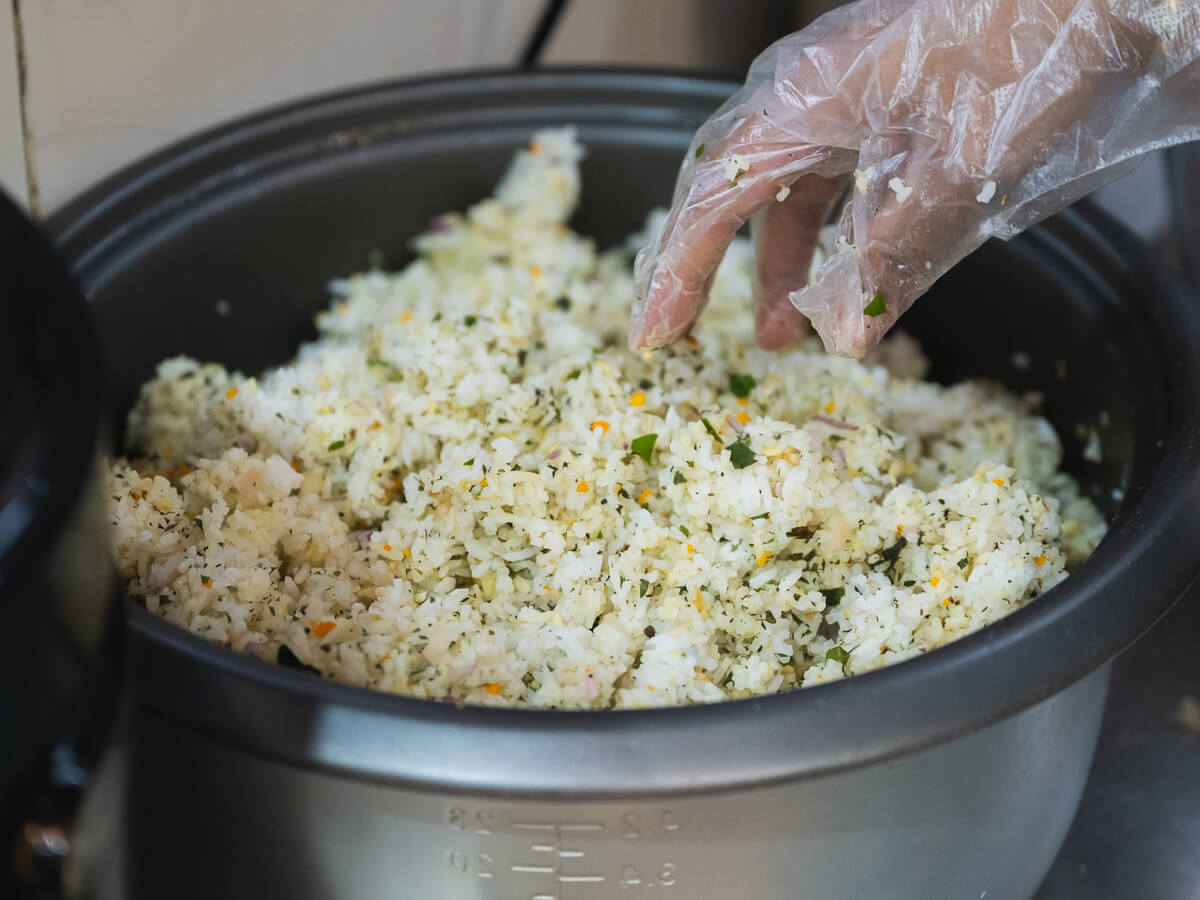
Whilst making nasi ulam is an expensive labour, Redha is richly rewarded by seeing people’s faces light up when they smell the rice, see all colours and taste the layers of flavours in their mouth.
“My love language is feeding people, so it makes me really happy knowing that people are enjoying my meals and that my family is proud of my success,” she says.
Craving soul food? Check out Onggii at Suntec City, or Choon Hoy Parlour for food that nourishes the soul and belly. Otherwise, read more about the hawker-baker sisters who run Butter Town.
You can book a ride to The Little Red Hen to sample Redha’s nasi ulam dishes.
Do explore the GrabFood Dine Out service for awesome deals.
The Little Red Hen
Amoy Street Food Centre, 01-66, 7 Maxwell Road
Nearest MRT station: Maxwell and Tanjong Pagar
Opens: Mondays to Fridays (10 am to 2pm)
Amoy Street Food Centre, 01-66, 7 Maxwell Road
Nearest MRT station: Maxwell and Tanjong Pagar
Opens: Mondays to Fridays (10 am to 2pm)
